Proper nutrition for weight loss begins to interest us the moment we understand that diets don’t help. Diets don’t help - that’s a fact. Why? The answer lies in the prohibitions and restrictions that abound in both the modern and the well-known "proven over the years" diet. A proper diet for weight loss should be varied, healthy and nutritious, no matter how strange it sounds. There are several principles to such a diet. And a lot more misconceptions, misjudgments, stories about fantastic superfoods, blacklists of "harmful foods, " and stories about their amazing rehabilitation.

Before starting a conversation about nutrition, you should understand that in recent years, more specifically in the last 25-30 years, the balance of essential nutrients - proteins, fats and carbohydrates - has been quite distorted towards the carbohydrate component. However, you don’t have to strain and calculate too much - just go to any store and look at the windows with sweets. They occupy almost a quarter of the store! The first step in moving to a proper diet for dieting will be a complete rejection of sugar in your daily diet. Sounds scary, right? You know why? Because sugar addiction is similar to drug addiction.
- Well, it started. . . - someone says in frustration, - Again prohibitions and restrictions!
Pay attention for a few minutes and agree that giving up sugar can be a huge breakthrough in improving your body’s health and consequently losing weight.
Of course we need carbohydrates. But which one? We’ve all heard of fast and slow carbs. We need to be slow. Dishes made from cereals, wholemeal flour, vegetables. . . Fruits and berries are full of fast carbs, but it’s better to eat fruits and berries than buy sweets in the patisserie. Many nutritionists recommend that you definitely and abruptly stop taking carbs and whatever, reducing your intake to 20-50 g per day. Such a sharp transition from the usual to the useful can lead to dizziness, loss of energy, bad mood and belief that it is not so useful and proper nutrition.
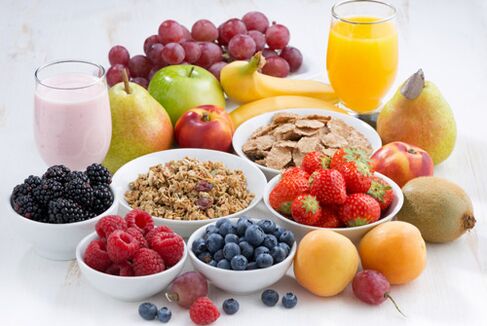
Proper nutrition to lose weight will bring you much more benefits and pleasure if you switch to it gradually, consistently, and don’t get lost. But first you need to understand why our bodies are so stubbornly resistant to any change, especially a decrease in the amount of sugar.
Sugar is truly the scourge of our time. There are not even a teaspoon of sugar missing from the few products offered to us in supermarkets. We're not even talking about sweets now! Juices, yoghurts, marinades, sauces, semi-finished meat products, sausages and sausages, canned fish, instant soups, instant noodles. . . The list is almost endless! The more horrible the transition to the new principles of nutrition - it turns out we have almost nothing to eat !? Don’t panic, there’s a way out and it’s pretty peaceful.
Proper nutrition for weight loss begins with three steps.
First step:remove sugar in its pure form. Tea, coffee, compotes without compote. We refuse canned food, jams, sweets, chocolates, cookies and other pleasures of tea-making with friends or during work breaks. Ice cream, cakes, even low-calorie marshmallows are excluded from our table! All carbonated drinks are prohibited. Try going without sugar for two weeks, just two weeks - you’ll be surprised. The tea, it turns out, tastes different. Coffee too. Cocoa with milk, but without sugar, fills better than any stimulant. And what to serve with tea? At this stage, nuts (unsalted), dried fruits, honey energy mixes (a mixture of nuts and dried fruits, you can add lemon through a meat grinder), buttered sandwiches (yes, yes! ), Cheese with normal sausage, and better home-cooked pork with caviar, caviarwith salted salmon, etc. However, tea and all these delicacies should be included in breakfast, lunch or dinner and should not be a regular snack. But about the snack a little later.
Second step:When the body changes from fast carbs to slow, it’s time to eliminate foods with a high glycemic index: premium wheat flour, white rice, and potatoes. That is, every bun, bread, pie, peeled rice porridge, semolina, and everyone’s favorite semolina pie and all kinds of potatoes are automatically transformed from everyday food into delicacy. Yes, and the soups are still without potatoes. However, wholemeal rye bread and baked goods (no sugar, remember? ), Instant oatmeal poured overnight with steamed or simply clean water overnight, mixed very well with fermented dairy products as well as all exotic products or forgotten cereals such as spelled, quinoa. In addition, you need to remove frankly sweet fruits from your diet - bananas, grapes, pears. Due to their high acidity, berries are not included in this list.
Third step:at this stage you need to leave out all the carbs, only the natural carbs that are part of the vegetables and sour berries. However, sometimes the first two steps are enough to significantly reduce weight. And if you meet a few additional conditions in parallel, you don’t have to find a new diet for yourself - it takes you to a whole new level where proper nutrition comes first and life.
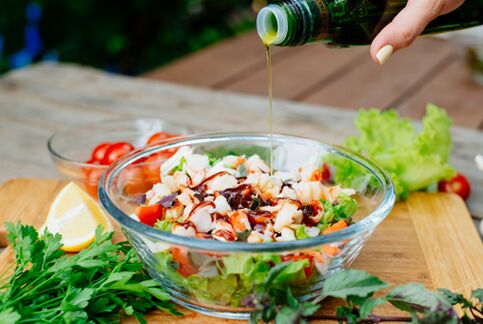
The right diet for weight loss should be changed.This means that the balance should contain not only the infamous BJU (proteins, fats and carbohydrates), but also vitamins and trace elements. And if carbohydrates bring energy to us in pure, accessible form, it is much harder for the body to get that energy from proteins, and even more so from fats. But, as is often the case, the most useful is usually what is difficult to obtain. Calories from carbs are usually excessive, our bodies put almost no effort into processing them, which is why "sugar calories" fit into moody fat rolls so quickly.
Proteins are vital to our body.Protein is important throughout life: in childhood it is a building material, in adulthood it is an element that helps our body function and maintain the best for as long as possible. Judge for yourself: the protein has a protective function, helps in the production of antibodies, in transport, the most famous protein hemoglobin supplies all cells with oxygen, regulating - normal hormone production protein, without motor impossible - the movement of all types of proteins myosin and actin, plastic - collagen protein is responsible for connective tissue condition, skin appearance, etc. , energy - proteins provide energy to the body. But perhaps one of the most important functions of a protein is to preserve and transmit gene information. It is believed that the increasingly common horrific disease, "Alzheimer’s disease, " is directly related to insufficient protein intake (not only with this, but also with the second most important component at slightly lower levels).
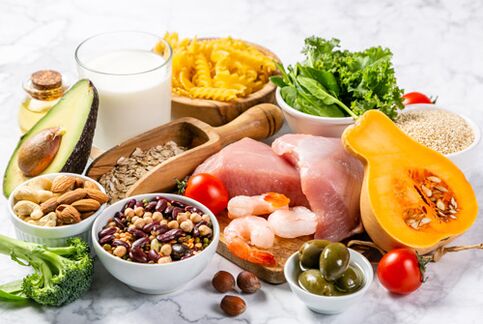
How much protein does the average adult need? Many nutritionists, doctors, and proponents of proper nutrition adhere to the protein intake standards that German scientist Max Rubner inferred more than a hundred years ago, and that norm was 0. 33 g of protein per kg of human weight. Since then, much has changed, science has advanced, and recent studies have gained a very average weight of 1, 2 - 2. 0 g / 1 kg. Impressive difference. In addition, this 1, 2 - 2, 0 g is not the weight of the product, say a piece of meat or a portion of beans, but the pure protein content of the product. A sample table of high protein foods is available on our website. Our site has written more than once about the benefits of protein products, but it never hurts to repeat these common truths.
Despite the great popularity of vegan, raw foods, and a vegetarian diet, we still need at least 50% animal protein to keep the body healthy and not surviving. These are eggs, dairy products, fish and seafood, meat and offal. These proteins have a complete set of amino acids, unlike plant foods. Although you need to eat them, it is only because variety is the essence of proper nutrition!
It is clear that there are few products on our planet that are made of a single material. Almost every food is a combination of proteins, carbohydrates and fats. And here happened with the last ingredient - fats - perhaps the greatest criminal history in the history of nutrition science. At one "perfect" moment, fats were declared an enemy of health. Everyone had heard horror stories about cholesterol, blood vessel plaques, and other horrors. in the sincere desire to give us "right, " "healthy, " "live" foods because there is nothing right and useful when there is no fat in the diet.
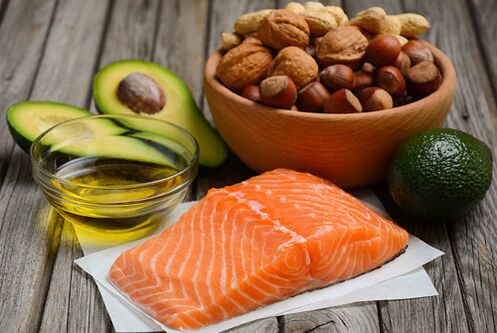
So what is the function of fats in our body? You will say - help with fat-soluble vitaminsin its assimilation. That is all? From the biological lessons of school days, one will remember the heat exchange function of fats. Thus, the most important function of fats in the body is subfractant metabolism, i. e. , simply expressed oxygen metabolism in the alveoli of the lungs. Fat coats the wall of the alveoli in the thinnest layer and allows us to breathe and. . . let's live. My grandmother immediately remembers the methods of treating lung diseases: badger fat, dog fat, goose fat, hot milk and butter - there is fat everywhere, inside and out, and it helped! And by the way, it still helps, only the drugs used to treat hypoxia (oxygen starvation), which are sold today for wild money, are actually a fat emulsion. Another important function of fats is the synthesis of membranes. The cell membrane is made up of 70-85% fat, and the function of the membrane is to ensure the protection, thermal insulation, and selective permeability of the cells (since not everything that is useful and necessary to enter the cell is available). The myelin layer, this is the insulating covering of our nerves, is 70-80% saturated fat. No myelin - Alzheimer's disease, senile (much younger) sclerosis and dementia. Fat is one of the most important substances that is vital for the construction of membranes, the myelin sheath, ensuring their function and the functioning of the central and peripheral nervous systems. Remember this when choosing 0, 5 and 3, 2% fat milk.
Another important function of fats is hormonal. Fats are the ones that serve the synthesis of hormones, and there are a lot of them in our bodies. These include growth hormones, protein hormones, thyroid hormones, hormones of the digestive system, steroid hormones, adrenal hormones, sex hormones, and so on. Clearly, the slightest bias, the underproduction of any hormone, threatens huge disruptions to the work of the entire body. Sudden attack of blackheads and acne, all kinds of skin rashes are a sign of low androgen levels. Frequent "no cause" headaches can be a sign of low estrogen levels. Persistent insomnia - not enough progesterone. Fatigue, exhaustion, and even exhaustion during rest can be a sign of a violation of thyroid hormone production. Hair loss is also a sign of this disorder. Weight gain can be caused by high levels of estrogen, cortisol, and insulin, coupled with low testosterone levels. Forgetfulness and distraction are indicators of low estrogen and cortisol levels. How everything is connected!
Fats are responsible for thermoregulation. This is why men who do not follow a diet are often warmer than women who are always on a diet. Constant freezing of the hands and feet is probably a sign of a lack of fat, if it is not some kind of innate feature. The most famous function of fats is to dissolve and help absorb fat-soluble vitamins: A, E, D, K. Sitting on a low-fat diet and drinking vitamin complexes is not an option, vitamins are simply not absorbed.
And last but not least - vitamins, minerals, macro- and microelements. These ingredients are found in different amounts and combinations in each product, but special attention should be paid to fresh vegetables, roots, fruits and berries. One of the most valuable vitamins - vitamin C - is not synthesized in our body, it can only be obtained from fresh plant products. Our site is filled with a whole section on vitamins, read on, helpful! Plant foods contain enzymes and flavonoids, all kinds of minerals without which we simply cannot function normally. For example, potassium - the work of the heart without interruption. Magnesium is responsible for the health of the brain, nervous system and hormonal system and is involved in metabolic processes. And plant products also contain fiber - without it, the process of digestion and peristalsis is almost impossible!
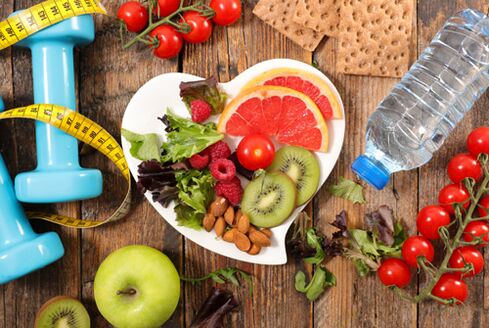
Proper nutrition to lose weight and improve the body includes the following principles:
Eat no more than three times a day. Unexpected, right? But what about 5-6 meals a day, advertised in many recommendations? Such fragmented meals are perfect for children, athletes and the seriously ill. If you do not fall into one of these categories, eat three or even twice a day.
Only eat when you are hungry, not at night. Breakfast is optional! If you don’t feel like eating in the morning, reschedule breakfast a few hours later. Don’t crowd food just because someone thinks breakfast is most important.
Learn to listen to yourself and understand between hunger and the usual habit of something mixing. The following recommendation will help you with this.
Drink water. Not in liters, as is sometimes advisable. Not cooked. Ideally bottled or spring loaded. The drinking regime is simple shamefully: 2 glasses of lukewarm (not cold and boiling water) in the morning, 1-2 glasses a day and 1 glass in the evening. Sometimes drinking enough water to understand that it was just thirst, not hunger.
Get used to buying all kinds of nuts and seeds more often. In addition to fats, they contain huge amounts of macro- and microelements.
Eat whole foods. That is, it is not fat-free! Cottage cheese - 9% fat, no less, but with sour cream, coffee cream, buttered sandwiches, fatty cheeses, fatty sea fish, exotic avocado, bacon! This is not a typical distortion "from fire to fire". Of course, action is needed on everything.
Let's not forget about proteins! But no less important is what to combine. And this recommendation will be the last.
Eat vegetables. Lots of vegetables and herbs. Fresh, marinated, marinated, steamed, cooked and even fried in oil! But of course, fresh salads are preferable. It’s not hard to calculate the amount of vegetables: mentally divide your plate into two parts - half is occupied by vegetables and the second is protein, fat and the same amount of minimum carbs allowed.
Proper nutrition for weight loss is not strict tables and recipes. This is a deliberate approach. These tips only work if carbohydrates are almost completely rejected. If you combine proteins with carbohydrates (mashed potatoes and a slice) or fats with carbohydrates (bacon bread) in a bowl, you’re ready. Specifically, no, of course you won’t die right away. He’s just going to live longer, sighing at every new pound and complaining about injustice ("I’m literally sitting on the same water, where does fat come from??? "). You don’t have to sit on the water, you don’t have to torture yourself with starvation, diet products. start with three steps and walk without going anywhere, towards health and beauty.















































































